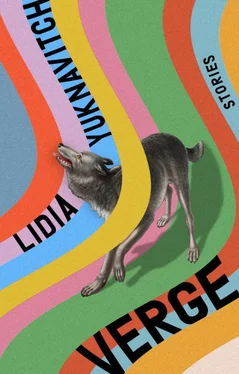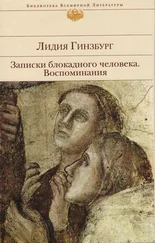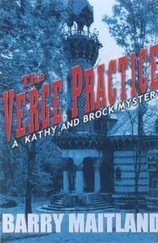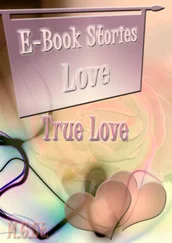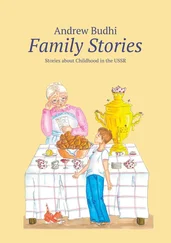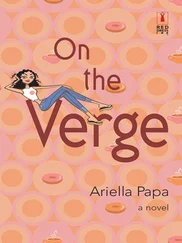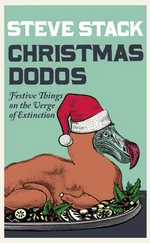Лидия Юкнавич - Verge - Stories
Здесь есть возможность читать онлайн «Лидия Юкнавич - Verge - Stories» весь текст электронной книги совершенно бесплатно (целиком полную версию без сокращений). В некоторых случаях можно слушать аудио, скачать через торрент в формате fb2 и присутствует краткое содержание. Город: New York, Год выпуска: 2020, ISBN: 2020, Издательство: Riverhead Books, Жанр: Современная проза, на английском языке. Описание произведения, (предисловие) а так же отзывы посетителей доступны на портале библиотеки ЛибКат.
- Название:Verge: Stories
- Автор:
- Издательство:Riverhead Books
- Жанр:
- Год:2020
- Город:New York
- ISBN:978-0-52553-487-7
- Рейтинг книги:4 / 5. Голосов: 1
-
Избранное:Добавить в избранное
- Отзывы:
-
Ваша оценка:
- 80
- 1
- 2
- 3
- 4
- 5
Verge: Stories: краткое содержание, описание и аннотация
Предлагаем к чтению аннотацию, описание, краткое содержание или предисловие (зависит от того, что написал сам автор книги «Verge: Stories»). Если вы не нашли необходимую информацию о книге — напишите в комментариях, мы постараемся отыскать её.
A fiercely empathetic group portrait of the marginalized and outcast in moments of crisis, from one of the most galvanizing voices in American fiction. cite
Verge: Stories — читать онлайн бесплатно полную книгу (весь текст) целиком
Ниже представлен текст книги, разбитый по страницам. Система сохранения места последней прочитанной страницы, позволяет с удобством читать онлайн бесплатно книгу «Verge: Stories», без необходимости каждый раз заново искать на чём Вы остановились. Поставьте закладку, и сможете в любой момент перейти на страницу, на которой закончили чтение.
Интервал:
Закладка:
“You’ve got brains too,” I said. “That’s how you got where you are.” He snorted and downed his drink.
“Pour me another,” and then, “You don’t know what the fuck you’re talking about.”
“What do you mean?”
He looked at me a long time, as if he were judging what I could handle. Finally he took a new sip and said, “Between you and me?”
“Sure.”
“I dropped out.”
“What the hell are you talking about?”
“I quit. I haven’t been back for months. I’ve been working at a construction site near my apartment and selling some shit on the side. It’s not great, but it’s a life. And I’m meeting people—important guys. Guys who are connected.”
“Wait—you’re telling everybody you’re at college when in reality you’re fucking conning us ?”
“What’s the con? I’m making a living on my own. I’ve got money. A job. Sex. Whatever I want. And like I said, I’m meeting some important people. The building we’re working on right now is filled with money. It’s a big opportunity. The guy behind the scenes is filthy rich. Had us up to his house in Dallas for a party. Wild, man. Chicks walking around with nothing but G-strings on, carrying mirrors of coke lines like platters at a restaurant. Pussy everywhere.”
I looked down at my hands, then down into my own lap.
“What’s the matter? Hasn’t anyone ever said ‘pussy’ to you?”
I nodded but couldn’t look up. My face was so hot I thought my head might explode. My hands made a pathetic cup between my legs.
He laughed again. “Don’t worry, baby. You’ll grow up soon enough.” He poured me another. “The whole world is one big fuckfest. Forget this life. Forget families—mothers, fathers, schools, jobs. There are only two kinds of winning, two ways of keeping score: bucks and fucks.”
I tried to laugh knowingly, then drank, then just sat there. I’ll admit it, I was in awe. We sat in silence after that.
Then he handed me something wrapped in what looked like the brown paper of a liquor store bag. The paper crackled as I opened it. It was a flask: a gift.
That birthday, from my parents, I received a set of all of Shakespeare’s tragedies, used copies, but beautiful somehow. The covers were dark red, with embossed lettering, and inside, the pages were as thin as moths’ wings. I could picture them burning, one at a time, lifting themselves toward heaven. My parents didn’t know me, not really, but they knew I loved books more than just about anything. They didn’t know why. Every page of words was a chance for escape, a chance to suicide into a life where the brain was something more than a heavy bundle of gray worms, into a place where the body lost its origins and confines and mutated endlessly. Whole worlds cupped between my hands. The only happiness I ever knew in that space came from between my legs, from a bottle, or from a book. Until the prison filled.
After my brother left, I thought about leaving myself, going to some college with ivy-covered walls, being in closed rooms with men spewing knowledge at me, writing papers that broke open dead worlds and constructed new architectures. I imagined living a double life in college, selling drugs, like him, fucking guys on the side for extra cash. On the edge, like Ophelia, rewriting her ending. After he left, I cried. Then I put my hand between my legs and rubbed so hard I thought I might bleed. Later I used a hairbrush to get at the deepest layers of what was inside me, to get it out, to make it alive and in the room with me, chaotic, heavy, wet, and free.
Nights overtook me. Alone in the attic, my hands dug and carried me into worlds of my own making. I brought my brother’s face into the walls now and again, as if he were watching, or guarding, or lifting me into darkness.
The day they lodged the last brick, stretched the last of the chain-link fencing, wound the last barbed loops overhead, I knew that my do-nothing life was about to be over. My dull, dead town had driven away like a herd of lost cows.
It hadn’t come easy. My parents had sat numb and silent while others argued their point: There were children in this neighborhood. What kind of lives could they look forward to? What kind of environment would this spread? How could they do this to good, honest folks who worked hard for their money, who saved to build back porches that now looked out on cinder block? But two years of grassroots petitions, city council protests, and a few stray acts of small-town resistance amounted to next to nothing. In the end those who were against the prison were overcome by those who brayed about five hundred family-range employment opportunities, about business and growth. To the people in the town, it was as if the summer had turned on honesty itself, on everything good and strong, as if something had grown up out of the ground and spread like disease.
What planted the prison in the town was money. The contractor, the mayor, and the governor had a relationship, and despite a few stories on the local news, the town was soon reduced to dirt and hot weather, until the only news stories were about the finishing touches on the penitentiary, and the town was half emptied and wrinkled like the skin on an old man’s knuckles.
Our house was at the edge of town, so we were right in the crosshairs. My father had been raised in the oil fields near Port Arthur; he’d nearly gone crazy from the black heads of the bobbing wells, the stench, the slow stab of the drill punctuating everything in sight. When he left, he said, all he wanted to see was land and sky and nothing else—said it made him feel free, the wide expanse. My father, I think, was mourning something more private: The distance of geography. The land releasing toward sky. Who knows what my mother thought? To me she was a frightened doe, her brain wrapped around images of homes for pretty white families, not property for a state penitentiary, not prisoners like a black plague infecting the land.
That great empty expanse my father loved only made me feel dead. In the attic window, with next to nothing on, I’d sit hunched over a shot glass and conjure a kind of dreamscape to fill it. I looked out over the endless rocks and shrubs and imagined red-and-gray structures emerging from the wasteland of dirt, buildings getting born, architecture threatening the sky with its geometry. I watched the fencing contain everything, reaching for miles around the place, its silver crisscrossing and walling off this world from that in great sheets of fence. I’d watch ditches being dug and phone lines being unraveled from huge reels, I’d watch more metal than I thought existed in the universe coming and coming, I’d see them pour the concrete for sidewalks and parking lots. The sound of construction out there in the heat and dry woke me in the morning and covered my dreams at night. I dreamed cities emerging, whole populations breeding from within concrete and steel, an urban species clicking and pounding away like a collective machine. The literal meanings of things dissolved. Dreams took up the space of my reality, dreams rebuilt from the shapes and images crowding up against our little house and family.
The day the prisoners finally arrived was a bit anticlimactic. They came in large green buses, stepping down onto fresh blacktop in their orange suits, marching single file from bus to building, disappearing into concrete and wire and metal. Some of the lines of men had handcuffs, some handcuffs and ankle cuffs, some neither. From my window I built a story: This was a hierarchy of crime—the more dangerous, the more tightly constrained. In reality the men all looked the same, their orange suits smearing them into a single image, their hair and faces repeating endlessly, their footsteps indistinguishable. And the not knowing a single soul, the anonymity of it, nearly made me crazy. Here they were, hundreds of them, soon to occupy tiny rooms and tiny beds in a cage with a toilet and ten steps’ walking space, and I had no connection with them, none that was real, none that I could feel. That day I spent drinking and walking ten steps the length of my room, six steps the width of my room, over and over again until I passed out.
Читать дальшеИнтервал:
Закладка:
Похожие книги на «Verge: Stories»
Представляем Вашему вниманию похожие книги на «Verge: Stories» списком для выбора. Мы отобрали схожую по названию и смыслу литературу в надежде предоставить читателям больше вариантов отыскать новые, интересные, ещё непрочитанные произведения.
Обсуждение, отзывы о книге «Verge: Stories» и просто собственные мнения читателей. Оставьте ваши комментарии, напишите, что Вы думаете о произведении, его смысле или главных героях. Укажите что конкретно понравилось, а что нет, и почему Вы так считаете.
